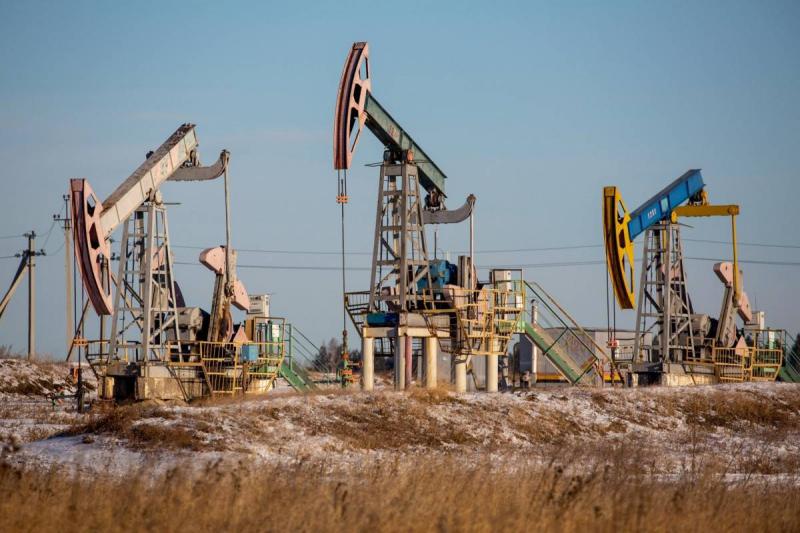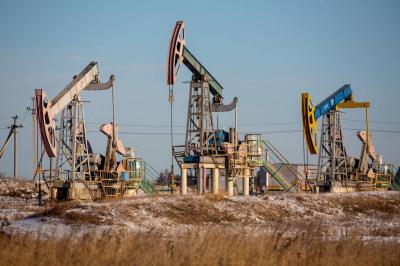Saudi Arabia and its allies in the OPEC+ alliance have put oil prices in the hands of U.S. President Joe Biden after they rejected his pleas for a significant increase in production, leaving the choice for him to tap into the U.S. strategic petroleum reserve. After a brief meeting on Thursday, the oil alliance agreed to increase production by 400,000 barrels per day in December. Major consumers say this increase is insufficient to sustain the economic recovery post-COVID, with the United States requesting an increase of 800,000 barrels per day.
In an initial response, the White House confirmed it would consider using "a full range of tools" to protect the economy. Crude oil prices dropped by 2.5%, settling at $78.81 per barrel in New York on Thursday. When later asked whether the U.S. would increase its oil supplies in response to the 400,000-barrel increase in December alone, White House Press Secretary Karine Jean-Pierre stated that the U.S. operates in a "competitive free market system" and emphasized that "OPEC+" is what affects global oil prices, which in turn affects gas prices in the country.
What happens in the coming weeks will have significant repercussions for the global economy, which has been harmed by rising energy prices, and for the domestic political agenda of the U.S. president, whose popularity is declining under the weight of surging inflation. The confrontation also puts additional pressure on the increasingly fragile U.S. relationship with its strongest ally in the Middle East, Saudi Arabia.
The OPEC+'s refusal to respond to the request for increased oil production threatens to spark a bitter battle with some of its largest customers. However, alliance ministers affirmed they made the right decision, stating that oil demand still faces challenges due to coronavirus. Russian Deputy Prime Minister Alexander Novak mentioned in a press conference after the meeting that his country has observed a decrease in fuel consumption in Europe during October, further reinforcing the notion that global oil demand remains under pressure due to the Delta variant. This indicates that the strategy of "gradual increases" in oil production is the correct approach.
"OPEC+" ministers repeatedly blamed their customers' economic troubles on high natural gas costs, over which the alliance has no control. Saudi Energy Minister Prince Abdulaziz bin Salman told reporters, "Oil is not the problem... the problem is that the energy complex is going through chaos and hell." Oil prices in London have risen by 25% since August, a significant increase that pales in comparison to the 80% jump in European natural gas futures during the same period. The Saudi Energy Minister remarked that if others are genuinely interested in addressing the root cause of the energy crisis, they should focus on natural gas supplies to Europe and Asia and the related infrastructure.
Consumer Concerns
While tapping into the strategic reserve may provide temporary relief or support for prices for Americans, it carries risks. It could set an uncomfortable precedent, as the reserve, currently over 612 million barrels, is primarily intended to alleviate the economic burden caused by disasters such as hurricanes or other natural calamities. Over the past year, oil-consuming countries have become increasingly alarmed by the return of rising crude oil prices, first to $50 per barrel, then $75, and now over $80. When Russian President Vladimir Putin—one of the leaders of the OPEC+ alliance—warned that $100 per barrel is a clear possibility, alarms began to ring.
As accelerating inflation has prompted some central banks to raise interest rates sooner than expected, the U.S., India, Japan, and other consuming countries have exerted stronger diplomatic pressure on the alliance than they have in years, but to no avail. In this regard, Bob McNally, president of Rapidan Energy Group and a former White House official, stated, "President Biden has made it clear that there will be a response if OPEC+ refuses to increase production faster." McNally noted that relying on oil from U.S. reserves in an emergency is "the most likely option."
White House Press Secretary Karine Jean-Pierre declined to comment on the possibility of using the U.S. strategic petroleum reserve but reiterated that the Biden administration "will use every tool at our disposal to ensure we are dealing with this (rising oil prices and supply shortages)."




